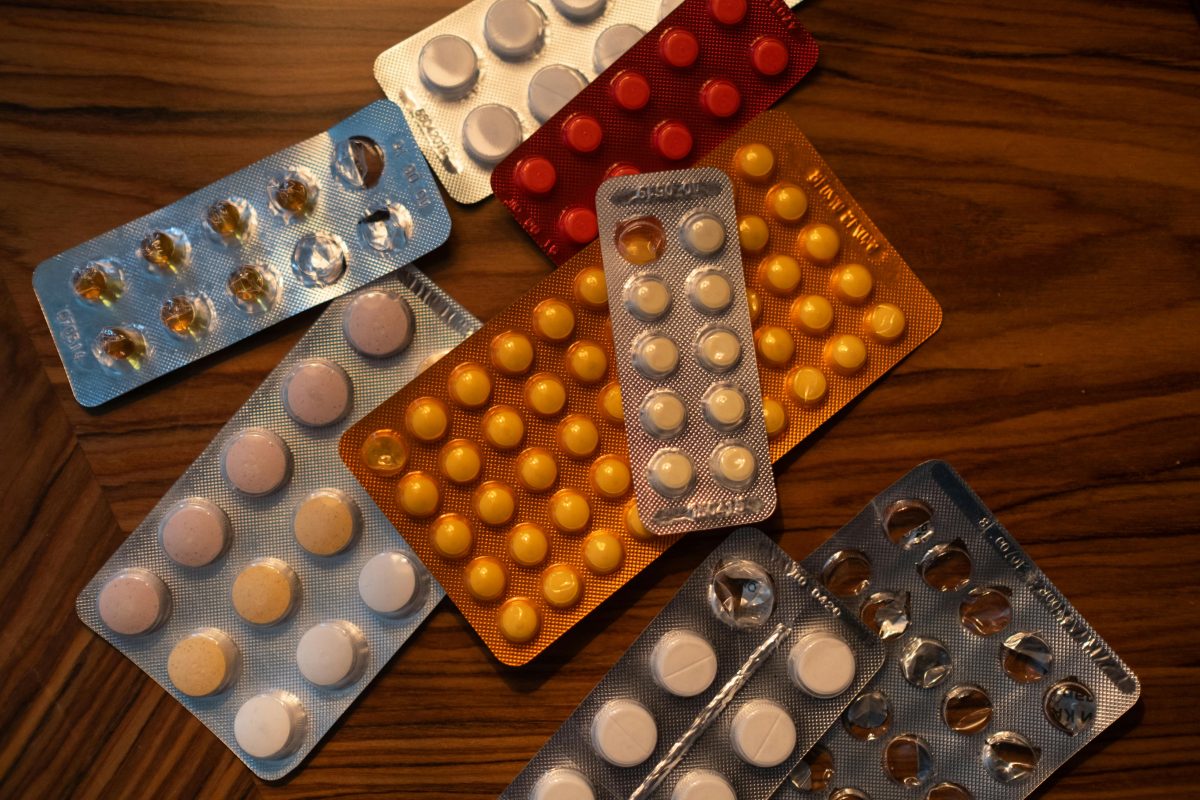Last Updated on: 14th July 2024, 09:04 am
Introduction to the Importance of Sleep

Sleep stands as a cornerstone of overall health, a foundation upon which our bodies build strength, repair themselves, and rejuvenate. It’s not just about getting rest; it’s about giving our bodies the time they need to perform critical functions that keep us at our best. For athletes and fitness enthusiasts, sleep takes on an even more pivotal role. It’s the unsung hero of muscle growth and recovery, a vital component that, when optimized, can significantly enhance physical performance and progress.
- Imagine sleep as the silent partner in your fitness journey, working behind the scenes to ensure you’re ready for every challenge and every opportunity to improve.
- It’s during those precious hours of slumber that our muscles find the peace they need to heal and grow stronger.
- Without adequate sleep, we’re not just tired; we’re deprived of this essential period of recovery and rejuvenation.
Thus, understanding sleep’s role in our overall health and its specific importance for athletes is not just beneficial; it’s crucial. It’s the difference between reaching our full potential or falling short, between thriving and merely surviving. Let’s dive deeper into how sleep powers muscle growth and recovery, and why making it a priority can transform your fitness journey.
Understanding Muscle Growth and Recovery

The Physiology of Muscle Growth
Muscle growth, or hypertrophy, occurs when muscle fibers are damaged through exercise, prompting the body to repair and strengthen them. This process is fueled by a blend of resistance training and adequate nutrition, leading to increased muscle size and strength. Essentially, when you lift weights or engage in strenuous activity, you’re setting the stage for your muscles to grow stronger than before.
The Recovery Process Post-Exercise
- After a workout, your body kicks into high gear, repairing the micro-tears in muscle fibers caused by exercise.
- This recovery process is when the magic happens—muscles rebuild stronger.
- However, this crucial phase requires proper rest, nutrition, and hydration.
- Skipping on recovery can halt progress and increase the risk of injury, making it a key player in your fitness journey.
How Lack of Sleep Affects Muscle Recovery and Growth
- Lack of sleep throws a wrench in the works. It disrupts the delicate balance of recovery hormones, such as growth hormone and testosterone, which are pivotal for muscle repair and growth.
- Sleep deprivation can also increase cortisol levels, a stress hormone that can break down muscle tissue.
- Therefore, skimping on sleep doesn’t just leave you feeling groggy; it directly hampers your body’s ability to recover and grow stronger.
In conclusion, sleep is not a luxury; it’s a necessity, especially for those looking to enhance their physical performance and muscle growth. By prioritizing sleep, you’re not just resting your body; you’re actively participating in a process that prepares you for the challenges ahead, ensuring that every workout counts. Remember, in the symphony of fitness, sleep plays a leading role, harmonizing the efforts of exercise and nutrition, and guiding your body towards its full potential.
The Science of Sleep and Muscle Repair

The Role of Sleep Stages in Physical Recovery
During sleep, our bodies cycle through various stages, each playing a unique role in muscle recovery. Deep sleep, or slow-wave sleep, is particularly crucial. It’s during this phase that the body repairs and regrows tissues, builds bone and muscle, and strengthens the immune system. This stage acts as a foundation, supporting the physical recovery and growth athletes and fitness enthusiasts rely on.
Hormonal Activity During Sleep and Its Impact on Muscles
- Growth hormone, peaking during deep sleep, plays the starring role, stimulating muscle growth and repair.
- Testosterone, another key player, also sees elevated levels during sleep, further supporting muscle recovery.
- This hormonal interplay is critical, setting the stage for muscle strengthening and growth.
The Effect of Sleep Deprivation on Protein Synthesis and Muscle Growth
- Shortchanging ourselves on sleep disrupts this finely tuned hormonal balance.
- Sleep deprivation lowers the levels of growth hormone and testosterone, crucial for muscle repair and growth.
- It also increases cortisol levels, which can lead to the breakdown of muscle tissue.
- Furthermore, inadequate sleep impairs protein synthesis, the process by which the body uses protein to repair muscle fibers.
In essence, sleep is the unsung hero of muscle recovery and growth. It’s not just about getting enough hours; it’s about quality, uninterrupted rest that cycles through the necessary stages. By prioritizing sleep, we give our bodies the best chance to heal, grow, and strengthen, readying ourselves for the next challenge. Remember, when it comes to fitness, sleep is as vital as the workout itself.
Optimizing Sleep for Enhanced Muscle Recovery

The Ideal Amount of Sleep for Muscle Recovery
For those pushing their limits in the gym, 7 to 9 hours of sleep nightly is not just recommended; it’s essential. This window provides the body ample time to cycle through the critical stages of sleep, including the deep, restorative phases where muscle repair and growth predominantly occur.
Tips for Improving Sleep Quality
- Creating a sleep-conducive environment is key. This means maintaining a cool, quiet, and dark bedroom.
- Establishing a pre-sleep routine, such as reading or meditating, can signal to your body that it’s time to wind down.
- Avoiding stimulants like caffeine and electronics before bedtime can also significantly enhance sleep quality, ensuring you drift off faster and stay asleep longer.
The Role of Napping in Muscle Recovery
- Napping is not just for the weary; it’s a powerful tool for athletes.
- Short naps, lasting 20 to 30 minutes, can provide a valuable boost in alertness and performance, without entering the deeper sleep stages that might interfere with nighttime rest.
- For those undergoing intense training sessions, a nap can act as a mini recovery session, offering muscles a brief yet effective period of repair and growth.
By prioritizing sleep, you’re not merely resting; you’re actively enhancing your body’s ability to recover, grow, and strengthen after each workout. Remember, in the grand scheme of fitness, optimizing sleep is as crucial as the exercises you perform. It’s the silent yet powerful ally in your journey towards peak physical performance.
Nutritional Considerations for Better Sleep and Muscle Recovery

The impact of diet on sleep quality cannot be overstated. What we consume influences our sleep cycles and, by extension, our muscle recovery. A balanced diet rich in specific nutrients can pave the way for deeper, more restorative sleep, setting the stage for optimal muscle repair.
Nutrients and foods that promote muscle recovery and better sleep include proteins rich in amino acids, like tryptophan, which aids in serotonin production, a precursor to the sleep hormone melatonin. Omega-3 fatty acids, found in fish, have been shown to improve sleep quality, while magnesium-rich foods like almonds and spinach relax muscles, promoting a more restful night. Cherries, particularly tart cherries, are a natural source of melatonin, and carbohydrates, when timed right, can aid in tryptophan’s brain uptake.
The timing of meals relative to sleep plays a crucial role. Consuming a heavy meal too close to bedtime can disrupt sleep, while a light snack, rich in the right nutrients, can enhance it. Aim to finish larger meals at least 2-3 hours before bed, allowing your body ample time to digest. A small, nutrient-dense snack, like Greek yogurt or a handful of nuts, can be beneficial if consumed an hour before sleep, providing the necessary building blocks for muscle repair without overwhelming the digestive system.
Integrating these nutritional strategies can significantly impact your sleep quality and muscle recovery. By paying attention to what and when you eat, you’re not just fueling your body; you’re setting the stage for a night of deep, restorative sleep that supports muscle growth and recovery, ensuring you’re ready to tackle your next workout with vigor.
Practical Strategies for Balancing Training, Recovery, and Sleep

Designing a Workout Schedule That Optimizes Recovery
- Strategically plan your workout routine to space intense sessions and allow muscle groups adequate recovery time.
- Intersperse lighter workouts or rest days between intense sessions to prevent overtraining and maximize the body’s natural repair processes.
The Importance of Rest Days and Active Recovery
- Rest days are crucial for strength building, not a sign of weakness.
- Integrating active recovery, such as light cardio or yoga, enhances the restorative process by promoting blood flow to repair muscles without excessive strain.
Techniques for Managing Stress and Its Impact on Sleep and Recovery
- Stress management techniques like deep breathing, meditation, or taking a simple walk can mitigate stress’s negative impact on sleep and recovery.
- A calm mind fosters a rested body, ready for the rigors of the next workout.
By embracing these strategies, you’re not just working out smarter; you’re ensuring that every rep, run, and resistance you face contributes to a stronger, more resilient body. Remember, the harmony between training, recovery, and sleep is where true progress plays its tune.
In Closing
Sleep is the bedrock of muscle recovery and growth. It’s the silent yet powerful ally in your fitness journey, harmonizing the efforts of exercise and nutrition. By prioritizing sleep, we not only enhance our physical capabilities but also embrace a lifestyle that values rest as much as activity. This article has underscored the critical role of sleep in achieving optimal muscle recovery, the hormonal symphony that repairs our bodies, and practical strategies to balance training and rest. Let’s commit to making sleep a non-negotiable part of our health and fitness regimen, recognizing it as a key player in our quest for peak performance and well-being.
Sleep’s Role in Muscle Growth and Recovery FAQs
Yes, lack of sleep can significantly hinder muscle growth by reducing the secretion of growth hormones and increasing cortisol levels, a stress hormone that can break down muscle tissue. This imbalance not only slows down muscle recovery but also affects the body’s ability to synthesize new muscle proteins effectively. Furthermore, insufficient sleep can lead to decreased energy levels and motivation for exercising, further impacting muscle development.
Napping can contribute to muscle recovery by offering additional opportunities for the body to repair itself, especially if nighttime sleep is insufficient. Short naps can help reduce fatigue, restore energy levels, and provide a boost in growth hormone levels, aiding in muscle repair. However, naps should not replace the deep, restorative sleep cycles that occur during a full night’s rest.
The quality of sleep significantly affects muscle recovery, as uninterrupted, deep sleep cycles are essential for the release of muscle-building hormones and repair processes. Poor sleep quality can disrupt these cycles, leading to insufficient muscle repair and growth hormone production. Ensuring a restful environment and maintaining a consistent sleep schedule can improve sleep quality and, consequently, muscle recovery.
Sleep is crucial for muscle growth as it is during deep sleep that the body releases growth hormones essential for muscle repair and growth. This period of rest allows the muscles to heal from the microtears that occur during exercise, leading to muscle growth. Additionally, inadequate sleep can decrease protein synthesis, slowing down the muscle-building process.
Sleep deprivation can negatively affect athletic performance by impairing cognitive function, decreasing reaction time, and reducing endurance. It can lead to increased perceived exertion during physical activities, making workouts feel more challenging than they are. Additionally, lack of sleep can increase the risk of injuries by affecting balance and coordination, further hindering athletic performance and muscle growth.
For optimal muscle recovery, adults should aim for 7 to 9 hours of quality sleep per night. This duration supports the body’s natural repair processes and hormonal balance necessary for muscle recovery and growth. Athletes or individuals engaged in intense physical training may require more sleep to allow for greater muscle repair and recovery.
It is possible to recover lost muscle growth due to poor sleep by improving sleep habits and ensuring consistent, quality rest moving forward. Incorporating a balanced diet and a well-structured exercise routine can also help regain muscle strength and size lost during periods of sleep deprivation. Recovery may take time, but with adequate sleep, nutrition, and training, lost muscle growth can be restored.
Best practices for improving sleep for muscle recovery include establishing a consistent sleep schedule, creating a restful sleeping environment free from distractions, and avoiding stimulants like caffeine close to bedtime. Engaging in relaxation techniques such as meditation or reading before bed can also help improve sleep quality. Additionally, avoiding heavy meals and intense exercise close to bedtime can prevent disruptions in sleep, aiding in better muscle recovery.
Nutrition plays a pivotal role in muscle recovery during sleep by providing the necessary building blocks for muscle repair and growth. Consuming a balanced diet rich in proteins, healthy fats, and carbohydrates can supply the body with the nutrients needed to facilitate muscle recovery overnight. Additionally, certain nutrients like zinc and magnesium can improve sleep quality, further enhancing muscle recovery.
REM sleep plays a significant role in muscle recovery by facilitating the brain’s processing of motor skills and consolidating memory, which is essential for muscle memory and recovery. During REM sleep, the body is able to balance its hormone levels, ensuring that growth hormones are adequately produced to aid in muscle repair. This stage of sleep also helps in reducing stress and anxiety, which can indirectly affect muscle recovery and growth.
Orlando is a all round athlete from Australia, now resident in Germany. His sports of passion of American Football(Offensive line), weight training and indoor rock climbing where he uses his 195cm wing span to his advantage.



